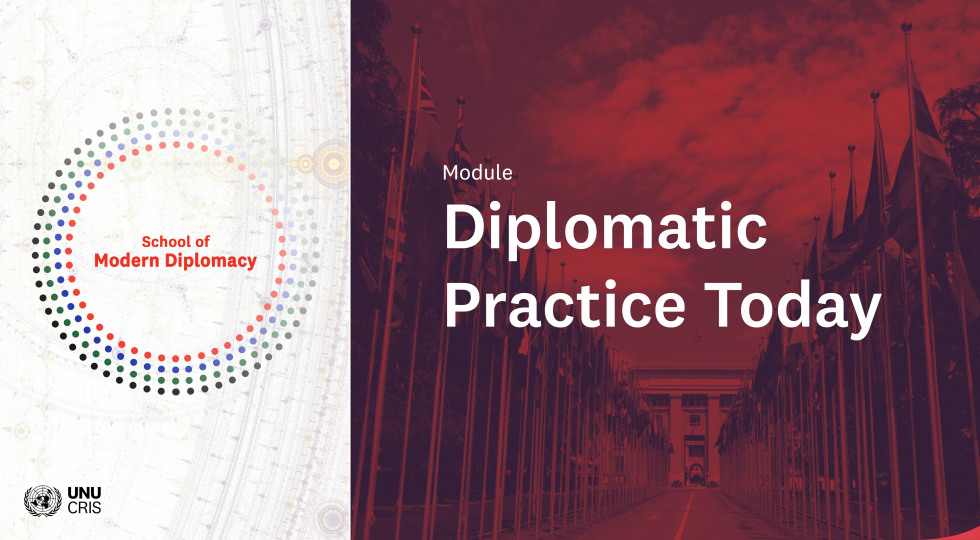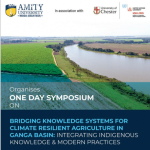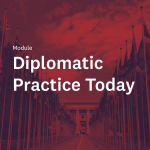Opening of the 2024 School of Modern Diplomacy

The first module of the School of Modern Diplomacy delved into the fundamental question: What is diplomacy? This topic is often misunderstood and oversimplified, but as the seminar revealed, diplomacy is a multifaceted and evolving practice that extends far beyond the popular notions of high-level meetings, geopolitics, or grand strategy.
Johan Verbeke, a seasoned diplomat and former Belgian Ambassador, led the module by emphasizing the distinction between the theoretical understanding of diplomacy and its practical application. He made clear that diplomacy is, at its core, a pragmatic profession, primarily focused on problem-solving, damage control, and influencing the behavior of others.
Key Themes
Diplomacy as Pragmatism
Contrary to the image often portrayed, much of diplomacy is grounded in practical, day-to-day actions. Verbeke described diplomacy as being less about grand strategy and more about "troubleshooting". Whether it’s resolving minor disputes or preventing larger crises, diplomats are constantly engaged in bargaining and negotiation, skills grounded in the psychology of social interaction. The real art of diplomacy lies in managing these small but critical issues effectively, as first introduced by philosopher Machiavelli.
The Role of Conversation
A major theme was the importance of conversation in diplomacy. Diplomats are constantly engaged in dialogue, whether in formal settings or informal discussions. A successful conversation, according to Verbeke, is a cooperative enterprise where both parties feel heard and understood. He underscored that effective communication requires understanding the implicit rules of interaction, such as turn-taking, brevity, and relevance to the topic at hand.
Negotiation as Cooperative Competition
Negotiation, another critical component of diplomacy, was framed as a "cooperative competition". In a negotiation, both parties agree to work toward a solution, but they do so by competing for the best possible outcome. Verbeke explained that successful negotiators must be prepared, knowing their objectives and those of the other side. A diplomat’s role is to guide negotiations to a compromise, where both sides achieve an acceptable balance.
Preparation and knowledge are central to this process. Verbeke emphasized that an effective negotiator must be deeply familiar with the issues at stake, as lacking this knowledge can lead to swift disqualification from the discussion.
Core Diplomatic Skills
The module also explored the essential skills that modern diplomats must master:
- Public Speaking and Advocacy: A diplomat must clearly articulate their country’s position on key global issues. Whether addressing an international body like the UN or negotiating in smaller forums, the ability to communicate persuasively is critical.
- Writing and Reporting: Diplomats need to be concise and clear in their reports, focusing on the essential information. Verbeke advised diplomats to craft reports that are no longer than a page and a half, with clear summaries of the main points.
- Language Proficiency: Language is not just a tool for communication but a gateway to understanding different cultures and perspectives. Being bilingual or multilingual enhances a diplomat’s ability to connect with others and opens doors to deeper understanding and trust.
- Empathy and Rational Understanding: Diplomats must possess empathy—the ability to understand not just what others are saying, but why they are saying it. However, this empathy must be rational, not emotional. It’s about seeing the world through the eyes of others without necessarily agreeing with them.
- Maintaining Composure: A key part of diplomacy is keeping calm under pressure. Diplomats must remain composed, even in high-stress situations, offering clear and measured responses when others might be emotional or frustrated.
Modern Challenges to Diplomacy
The first module also addressed the modern challenges facing diplomacy, as discussed by Andrew F. Cooper and Corneliu Bjola. These include the rise of populism, geopolitical fragmentation, and the increasing role of digital technologies in shaping public diplomacy.
Populism and Geopolitics: Cooper highlighted how populist movements and shifting geopolitical alliances have fragmented traditional diplomatic practices. Countries are increasingly using "weaponized diplomacy" through the phenomenon of wolf warrior diplomacy used to vilify opponents or bypass formal diplomatic channels. This has led to a more fragmented and unpredictable global diplomatic landscape.
In the question regarding emerging trends in diplomacy, emphasis was placed on the aspirations of small and middle-size actors in shaping the future of modern geopolitics, as well as the diversification of diplomatic representation. Jamboree diplomacy is also going to take centre stage through the fragmentation of symmetry and the rise of summit diplomacy. Conversely, celebrity diplomacy seems to be eroding, while important figures still serve as a means of credibility to the broader public.
Digital Diplomacy: Bjola emphasized the growing importance of digital diplomacy in the modern era. Social media, AI, and real-time data are transforming how diplomats engage with the public and each other, with the pandemic constituting an external shock to digital diplomacy. While these tools offer opportunities for broader engagement, they also bring risks, such as the spread of misinformation and the manipulation of public opinion.
The module underscored that diplomacy in the 21st century requires adaptability, technical skills, and a deep understanding of both traditional diplomatic practices and emerging technologies. In the words of Cooper, “getting digital right” is going to be a big question.
Conclusion
Overall, the opening module of the School of Modern Diplomacy provided a nuanced understanding of what diplomacy really is. Far from being an abstract profession, diplomacy is about practical problem-solving, effective communication, and managing complex relationships. Modern diplomats must navigate a rapidly changing world where geopolitical realities and digital transformations continuously reshape the diplomatic landscape. By mastering key skills, such as negotiation, empathy, and public speaking, diplomats can rise to meet the challenges of this evolving field, ensuring that diplomacy remains a vital tool for resolving conflicts and promoting international cooperation in an increasingly digital and fast-paced world of communication.




